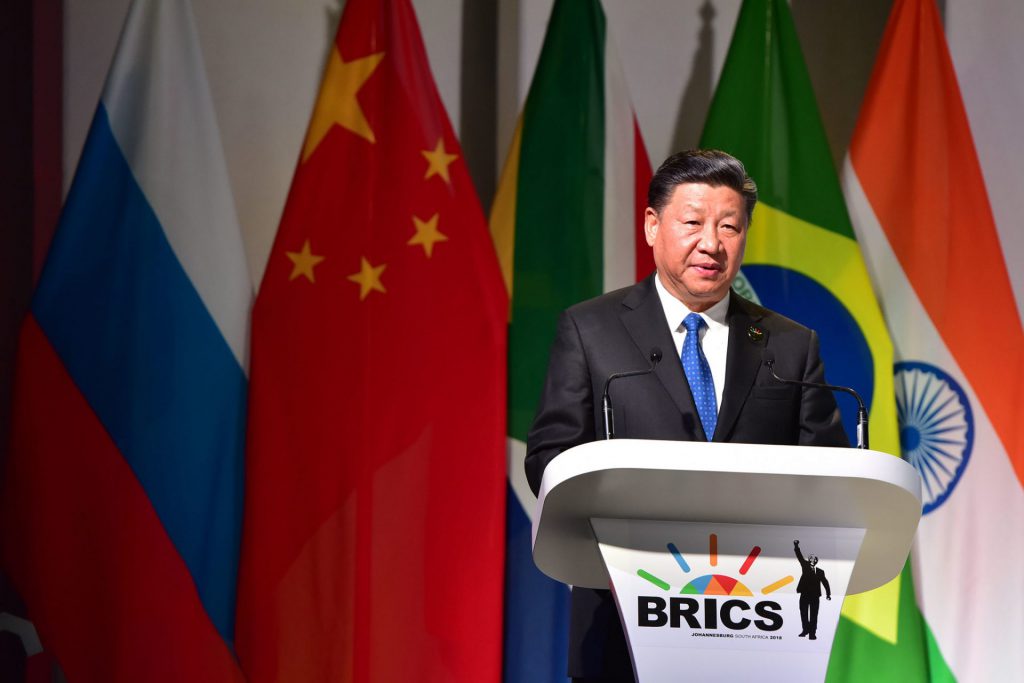The BRICS alliance of Brazil, Russia, India, China, and South Africa convened in Johannesburg to discuss the possibility of inducting additional members and exploring alternatives to reduce dollar dependency in intra-member trade.
This meeting, attended by leaders from the member nations, also saw participation from over 60 global leaders, including 54 African heads of state.
At least 23 countries expressed interest in joining the BRICS, with Saudi Arabia, UAE, Argentina, Bolivia, Venezuela, Indonesia, Egypt, Nigeria, Iran, and Belarus among the key contenders.
As the world’s second-largest economy, China champions the alliance’s expansion.

Beijing perceives a bolstered BRICS as a strategic tool to enhance its global influence and counterbalance the G7—a group comprising Germany, Canada, the US, France, Italy, Japan, and the UK.
Originally termed “BRIC” by economist Jim O’Neil in 2001, referencing the major emerging economies of Brazil, Russia, India, and China, South Africa joined later, coining the now-known BRICS.
While boasting considerable economic heft, these nations also grapple with shared challenges, notably addressing poverty within their sizable populations, which cumulatively amounts to 3.2 billion people.
With China’s increasing global assertiveness, particularly against the US, there’s speculation about the BRICS adopting an anti-Western stance, especially if nations like Iran and Venezuela, known for opposing views to the West, were to join.
China’s leader, Xi Jinping, highlighted the growing interest in joining the BRICS, indicating China’s readiness to foster openness and mutual collaboration within the bloc.
Once hesitant about expanding, Brazil shifted its stance under President Lula, who now supports the idea championed by China.
However, there’s a concern among Brazilian diplomats that a larger BRICS might dilute the influence of current members.
South Africa and Russia favor expansion, primarily due to their close ties with China, while India remains apprehensive.
This summit might witness either the inclusion of new members or the establishment of criteria for future admissions.
One tangible BRICS achievement is the New Development Bank (NDB) headquartered in Shanghai, currently chaired by Dilma Rousseff, which provides loans for projects in member nations.
Discussions are underway that future BRICS members would also need to join the NDB, contributing to its operations.
The NDB has expanded its membership recently, inducting countries like UAE, Egypt, and Bangladesh.
Discussions about introducing a BRICS currency seem to be off the main agenda, with a shift towards promoting local currencies over the dollar for intra-BRICS trade.
This sentiment is strongly backed by Russia and China, who advocate reducing the dollar’s dominance in global trade.
Lula also supports leveraging more local currencies, questioning the global reliance on the dollar during a recent visit to China.

